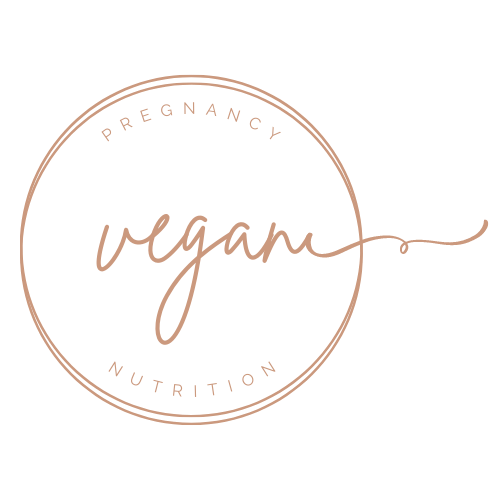8 Easy Ways to Reduce Bloating in Your First Trimester
written by Catherine Barry, Edited by Maya Bach, MPH, RDN
Pregnancy bloating happens when there is a buildup of gas in your gastrointestinal (GI) tract.
If you’re reading this, you’ve probably experienced some degree of bloating. In the past or right now, as you’re reading this!
If you’re in the first trimester and the early stages of your pregnancy, you may feel more bloated than usual. This is in part due to fluctuating hormone levels. In particular, the hormone progesterone, which plays a role in prepping your uterus to hold onto the fertilized egg, slows down your body’s GI tract. This slowing down process may lead to excess gas in your body - aka bloating!
Although a completely normal side effect of pregnancy, bloating can be highly uncomfortable. So hormones aside, what can you do?
Here are eight things you can do to reduce bloating so you can feel good throughout your vegan pregnancy!
Eat fiber-rich foods (but not too much at once!).
While fiber is great for good gut health and can help reduce common GI symptoms such as constipation, too much fiber can be challenging for your GI tract to process, causing more bloating and constipation. Foods that are especially high in fiber include berries, apples, root vegetables, greens, nuts, seeds, and whole grains, so it is important to be mindful of how much you eat at once.
Pro tip: Blending your fruits and veggies - think vegan smoothies and soups - helps break down the fiber, making it easier for your body to digest the meal.
Drink ~11- 13 cups of water per day or more.
Let’s face it - most of us aren’t drinking nearly enough water each day. Water is incredibly powerful in aiding digestion and keeping things moving in the digestive tract. One of the reasons too much fiber may cause bloating is because you are not drinking enough water to push these foods through the digestive system.
Pro tip: sip on your water throughout the day from an easy-to-carry water bottle. My personal favorite is Cacktaki! It’s not super heavy, and I like the sleek feel.
Slow down.
If you’re eating your meals too quickly, you may be swallowing air along with your food, causing your stomach to bloat. Pause between bites, chew your food, and enjoy the meal.
Chew your food.
The digestive process starts in your mouth! Not only does chewing your food help break down food before it reaches your stomach it also stimulates the release of digestive enzymes so that your stomach is ready for the food, helping to prevent bloating.
Pro tip: Put your fork or spoon down between bites as a visual reminder to chew your food thoroughly before your next bite.
Eat smaller, more frequent meals.
To make things easier on your digestive system, try eating smaller, more frequent meals as opposed to a smaller number of larger meals. Too much food all at once can slow down your digestion and cause bloating.
Pro tip: This applies to smoothies too. If you’re downing your smoothie in a few minutes, consider sipping it more consistently across 20 or so minutes. This will also help prevent dumping a ton of fluid and food into your stomach all at once!
Limit bubbly beverages.
Some carbonated beverages can contribute to bloating as the buildup of carbonated gas can cause the stomach to distend. Feel free to try a bubbly beverage, but if you feel extra bloated after, it’s probably a good idea to pass and stick to non-carbonated drinks.
Pro tip: add fresh mint or ginger to your bubbly drink to see if that helps. Mint can aid digestion, so it may help calm your stomach and reduce bloating for some pregnant vegan mamas. My favorite is this easy-to-add ginger juice to teas and smoothies.
Ditch drinking with a straw.
Using a straw captures some air that makes its way to your stomach, leading you to feel bloated. Opt for straw-free cups and mugs instead!
Take a light stroll after mealtimes.
After you eat, consider going for a light ten to fifteen-minute walk around your block to help stimulate your digestive system and reduce bloating. Another reason to get those steps in!
Pro tip: Not feeling like a walk or winter weather leaving you stuck inside? Light indoor cleaning or tidying up can also “count” towards gentle movement. Remember to check with your healthcare provider first, as some exercise may not be appropriate during pregnancy.
Bottom line:
When you change what and how you eat, you can take steps to reduce that uncomfortable bloating feeling that often accompanies the first trimester. And remember - sometimes these strategies will work, sometimes they won’t. Pregnancy is a time when your body changes so much. So be kind to it! And yourself. 💚
Ready to feel good about YOUR vegan pregnancy?
Join like-minded women inside the Vegan Pregnancy Collective to get the tools you need so you can stop worrying and wasting time Googling all things vegan pregnancy!


